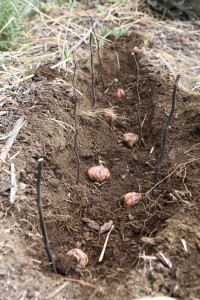Asiatic Lily planting
Asiatic lily (lilium). There is great enjoyment from growing one of my wife’s favorite flowers for her. With 30 bulbs to plant, it is going to be a challenge to find a place for them. Time is also another factor. Usually, lunch is made during my kid’s nap. Today, I postponed lunch and got to work as quickly as I can. On a good day, I may have a three hour window.
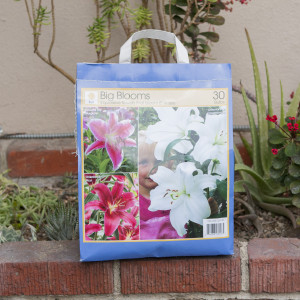
The bulk pack of bulbs included three varieties. From left to right: Pico, Stargazer, & Casablanca.
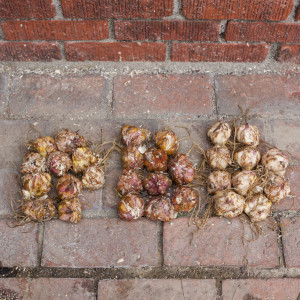
While it may be difficult to believe when looking at these bulbs, these bulbs are good quality. Some rust is a normal occurrence on lily bulbs.
One of the most unique characteristics of lily bulbs as compared to tulip bulbs is that lily bulbs are comprised of overlapping scales. Tightly grouped scales tell us that the bulb is robust. Unhealthy bulbs tend to fall apart during handling. On some of these bulbs, the growing tip is starting to appear. Which, I assume is a good sign of health.
Unpacking the three lily flower color/pattern types, it was interesting to find that the bulb color is reflective of the flower color. In the below picture of the three bulbs (from left to right) the corresponding variety is: Casablanca, Stargazer, Pico.
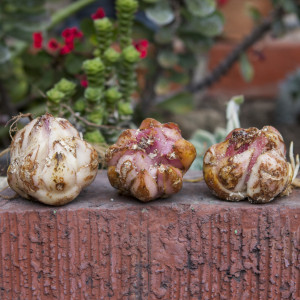
As for the location of planting, the Front Garden was the first choice. It is a sunny and proven location. During this exercise, a Russian sage and dahlia tubers had to be relocated (not pictured). Once moved, six Stargazer lily bulbs were planted in a row in front of the garlic chive and ‘red Creole’ onions. In terms of permaculture design, planting in front will mask the garlic chive and onion; giving it less of a vegetable garden look.
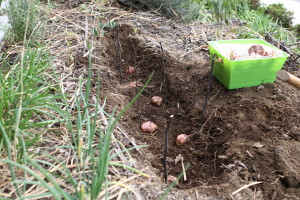
‘Forest pansy’ redbud sticks are used as markers. It is difficult to remember where what is planted without marking or mapping their location. Nothing is more painful than digging in the soil and discovering a bulb/tuber/rhizome freshly chopped in half.

Six down and twenty-four more to go.
